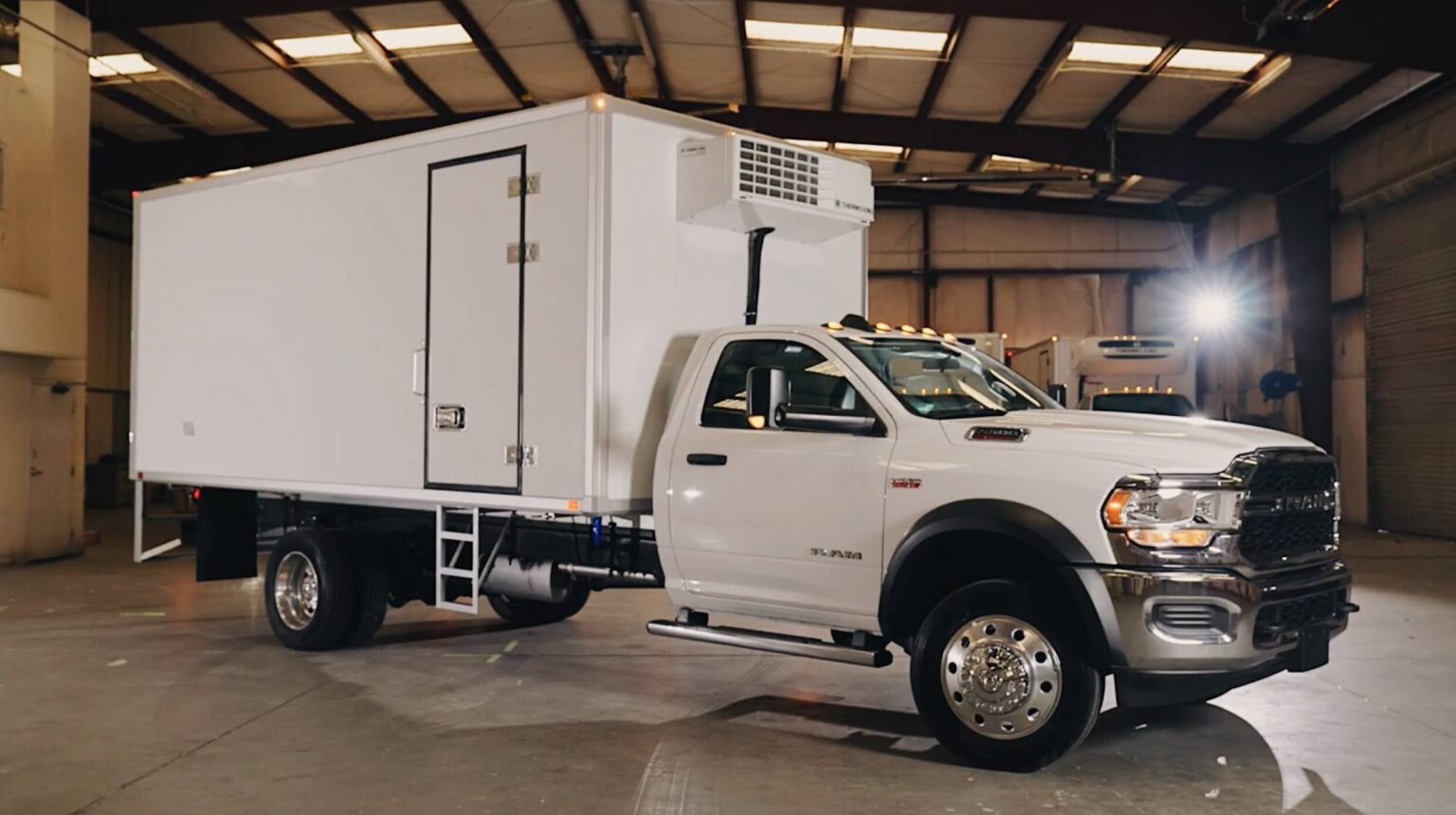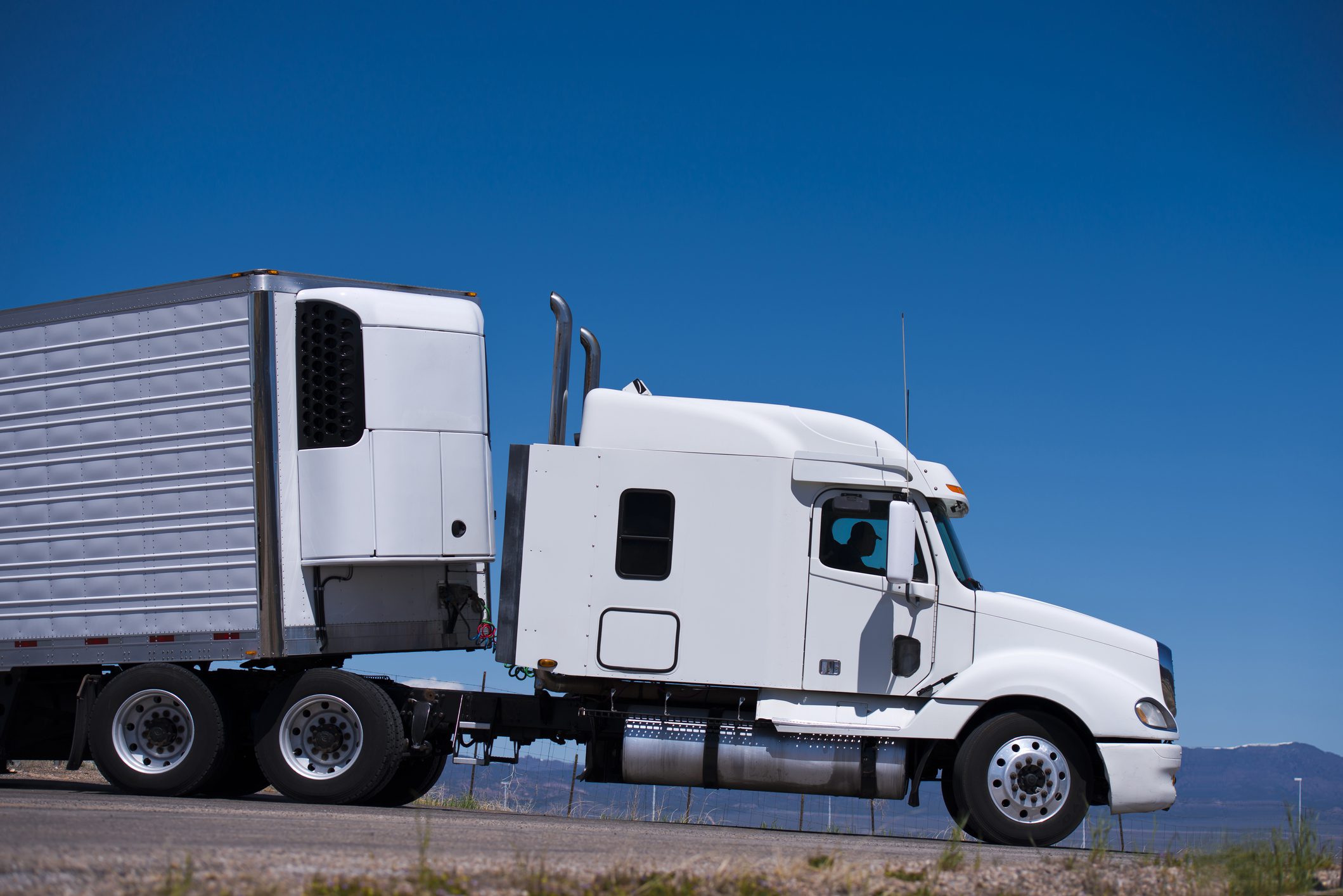Thermo King Transport Refrigeration: Dependable Solutions for Cold Chain
Thermo King Transport Refrigeration: Dependable Solutions for Cold Chain
Blog Article
Leading Developments in Transportation Refrigeration: Enhancing Performance and Safety And Security
The landscape of transportation refrigeration is undergoing significant makeover, driven by technologies aimed at improving both effectiveness and safety and security. As these technologies continue to progress, it is crucial to discover their ramifications on operational techniques and regulative compliance, motivating a more detailed examination of how they reshape the future of transport refrigeration.
Smart Temperature Checking Equipments
In the world of transport refrigeration, smart temperature surveillance systems have emerged as an essential advancement for ensuring the stability of temperature-sensitive items. These sophisticated systems leverage Internet of Things (IoT) innovation to give real-time data on temperature level fluctuations, enabling drivers to keep optimal problems throughout the supply chain. By continually tracking the temperature level of refrigerated containers and automobiles, companies can swiftly identify deviations that may compromise product top quality.

Additionally, clever tracking systems often integrate automated signals and notices, permitting stakeholders to react promptly to any type of possible issues. This positive technique not only lessens the risk of wasting but also boosts compliance with regulative criteria controling food safety and security and pharmaceutical transportation.
The combination of information analytics within these systems additionally facilitates anticipating maintenance, assisting drivers to foresee potential devices failings prior to they occur. This capability minimizes downtime and optimizes operational effectiveness, inevitably leading to cost financial savings.
Eco-Friendly Refrigerants
Smart temperature level monitoring systems play a vital function in preserving item top quality, but the efficiency of transportation refrigeration also hinges on the option of cooling agents used. In comparison, emerging choices like hydrocarbon-based cooling agents and hydrofluoroolefins (HFOs) present lower GWP alternatives, offering both efficiency and sustainability.
These green refrigerants not just decrease ecological impact however likewise straighten with international laws aimed at terminating damaging compounds. Their adoption can result in enhanced energy efficiency, ultimately minimizing operating expenses for transportation refrigeration systems. Additionally, the usage of natural cooling agents, such as ammonia and co2, has gotten traction because of their outstanding thermodynamic residential or commercial properties and lower ecological impact.
Buying green refrigerants is not merely a regulatory conformity procedure; it stands for a critical choice that improves brand reputation and cultivates client loyalty. refrigerated transportation thermo king. By prioritizing sustainable techniques, business can contribute to a greener future while making certain the honesty of moved items
Advanced Insulation Materials
Making use of sophisticated insulation products is critical for maximizing transport refrigeration systems, as they considerably boost energy performance and preserve consistent temperature level control. Conventional insulation approaches typically drop brief in protecting against thermal transfer, bring about increased power consumption and changing temperature levels within cooled compartments.
Emerging materials such as vacuum cleaner insulated panels (VIPs) and aerogels offer superior thermal resistance, enabling thinner accounts without compromising efficiency. VIPs, as an example, utilize a vacuum layer to lessen convective and conductive heat transfer, making them suitable for space-constrained applications. Aerogels, known for their permeable and lightweight framework, provide phenomenal insulation while substantially minimizing overall system weight.
In addition, incorporating stage adjustment materials (PCMs) into insulation systems can content better stabilize temperatures during transportation. These products soak up and release thermal power, successfully buffering versus external temperature level variations.
The integration of these sophisticated insulation products not only decreases the functional costs related to energy consumption but also extends the life span of temperature-sensitive products. As the transport refrigeration industry remains to develop, the fostering of ingenious insulation modern technologies will certainly be pivotal in enhancing both performance and safety in refrigerated transport.
Automated Route Optimization
The performance of transportation refrigeration systems is greatly enhanced through automated course optimization, which leverages innovative formulas and real-time data to identify the most reliable courses for shipment. By examining numerous aspects such as web traffic patterns, weather condition conditions, and distribution home windows, these systems can considerably reduce traveling time and fuel consumption.
Automated course optimization minimizes human error and subjective decision-making, which can bring about inadequacies. This modern technology enables fleet managers to designate resources a lot more properly, making sure that chilled products keep their needed temperature level throughout the journey. By optimizing courses, business about his can also boost customer complete satisfaction through prompt deliveries.
In addition, automated systems can adapt to unforeseen conditions, such as road closures or abrupt web traffic spikes, allowing for vibrant rerouting. This versatility not only secures the stability of temperature-sensitive products however additionally contributes to general functional effectiveness.
Applying automated route optimization can cause substantial expense savings while minimizing the carbon footprint connected with transport. As businesses progressively focus on sustainability, this development stands out as a critical component in contemporary transportation refrigeration, aligning functional goals with environmental duty. Ultimately, automated route optimization represents a substantial development in the mission for performance and safety in transport refrigeration.

Real-Time Data Analytics
Automated course optimization substantially gain from the integration of real-time information analytics, which offers crucial understandings right into the performance of transportation refrigeration systems. By using real-time data, transportation operators can monitor temperature level fluctuations and tools performance, ensuring that subject to spoiling products are maintained within needed parameters throughout transit. This proactive approach not only improves the high quality of the transported products but additionally mitigates the danger of putridity and loss.

In enhancement to boosting effectiveness, real-time analytics enhances safety by making certain conformity with regulative standards for temperature level control. This not only protects public wellness but additionally strengthens a company's credibility - thermo king truck refrigeration. As the transport refrigeration sector evolves, the assimilation of real-time data analytics becomes a foundation for driving development, sustainability, and functional excellence
Final Thought
To conclude, the advancements in transportation refrigeration significantly improve both efficiency and safety and security within the industry. Smart temperature level monitoring systems and real-time information analytics provide critical oversight, while environment-friendly refrigerants and advanced insulation materials add to sustainability and power performance. Automated route optimization formulas not only reduce traveling time but likewise lessen environmental effect. Jointly, these advancements stand for an important evolution in transport refrigeration, making certain compliance with regulatory requirements and promoting a greener future.
The landscape of transportation refrigeration is undertaking substantial change, driven by technologies intended at boosting both performance and safety and security.Smart temperature level discover this surveillance systems play a vital duty in preserving product quality, but the effectiveness of transport refrigeration also pivots on the selection of cooling agents made use of. Their fostering can lead to improved energy efficiency, ultimately decreasing operating expenses for transport refrigeration systems. Inevitably, automated course optimization stands for a considerable improvement in the quest for effectiveness and safety and security in transport refrigeration.
In final thought, the advancements in transport refrigeration substantially boost both performance and safety within the market.
Report this page